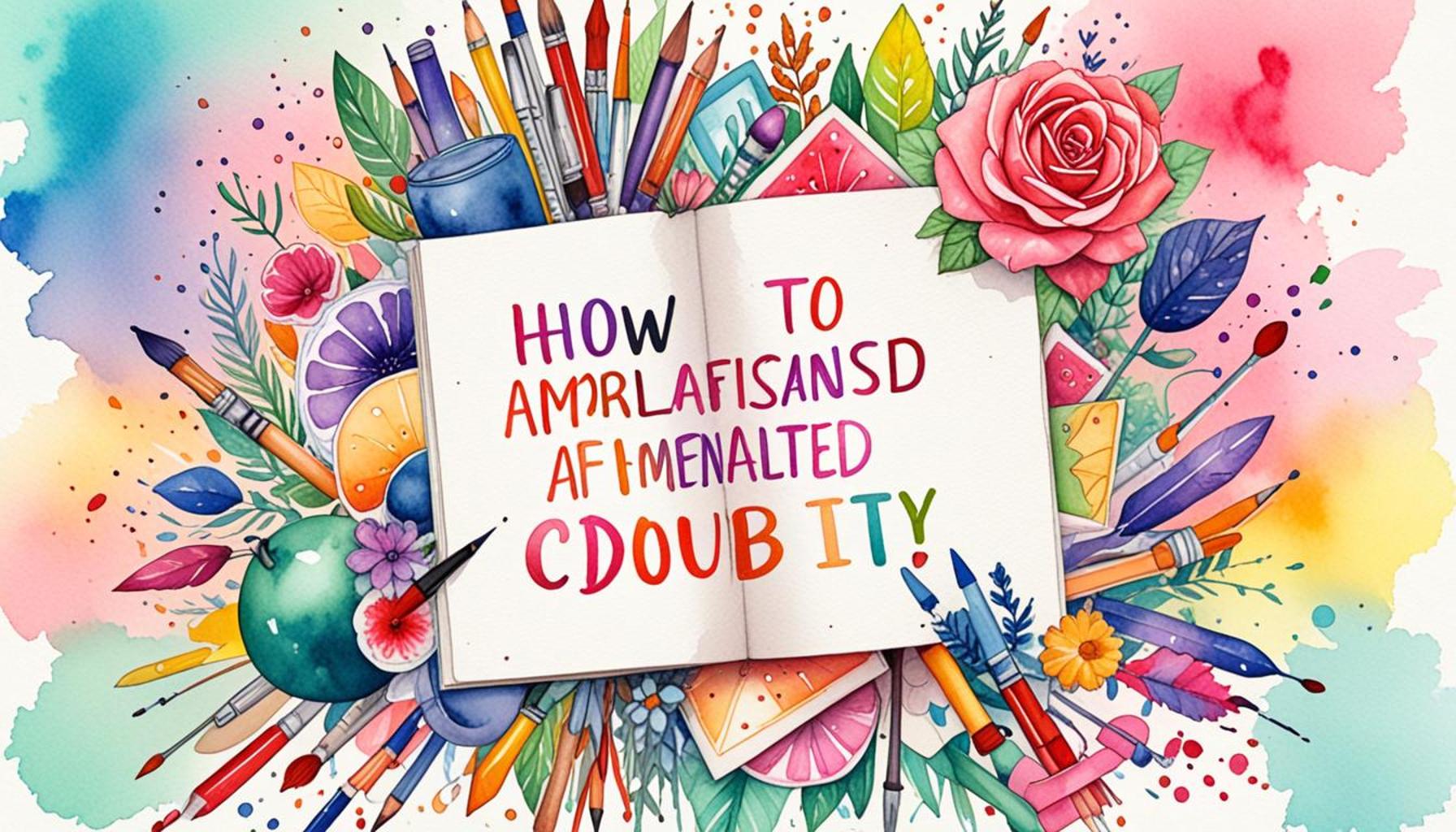How Positive Affirmations Can Help Overcome Mental Blocks

Understanding Mental Blocks and Their Impact
In various contexts, many individuals encounter mental blocks that stymie their growth and productivity. These blocks can surface as self-doubt, anxiety, or an overwhelming fear of failure, creating barriers that can be difficult to navigate. Often, these feelings lead to procrastination, a decreased sense of fulfillment, and a reluctance to pursue new opportunities. For communities facing socio-economic challenges, such as many in Nigeria, these mental barriers can feel even more pronounced, underscoring the need for effective strategies to combat them.
The Power of Positive Affirmations
One powerful tactic for overcoming these obstacles is the practice of positive affirmations. These straightforward yet impactful statements are designed to foster self-reflection and empower individuals. By routinely repeating affirmations—such as “I am capable,” “I deserve success,” or “I can overcome challenges”—individuals can significantly transform their mindset.
- Boost self-esteem and confidence: Regularly affirming one’s worth can build a solid foundation of self-belief.
- Reduce negative thought patterns: Positive affirmations can disrupt the cycle of pessimism, helping individuals to cultivate a more optimistic inner dialogue.
- Enhance resilience during challenging situations: Repeatedly affirming one’s strength and capabilities can fortify a person’s resolve, enabling them to face difficulties head-on.
Addressing Specific Challenges in Nigeria
In Nigeria, where economic pressures and societal expectations can create substantial stress, incorporating positive affirmations into daily routines can prove to be particularly advantageous. Affirmations can support individuals in various contexts, including:
- Workplace anxieties and job insecurities: In a competitive job market, employees can use affirmations to reaffirm their skills and reinforce their professional identities.
- Academic pressures and performance fears: Students often grapple with the pressures of excelling, and positive affirmations can provide a counterbalance to fear of underperformance.
- Personal doubts arising from societal norms: Individuals navigating cultural expectations can use affirmations to reaffirm their identities and choices, promoting self-acceptance.
The Scientific Backing
Research indicates that integrating positive affirmations into daily habits can effectively rewire brain pathways, leading to an optimistic outlook and reducing the influence of mental blocks. This practice not only fosters a sense of tranquility but also enhances overall mental health by minimizing anxiety and depression symptoms.
By delving further into the transformative power of positive affirmations, individuals can unlock their potential and navigate life’s challenges more effectively. In a world rife with obstacles, harnessing the strength of one’s inner voice can become a pivotal step toward achieving personal and professional success.

ADDITIONAL INSIGHTS: Expand your understanding here
Unlocking Potential Through Positive Affirmations
Positive affirmations are more than just motivational phrases; they act as psychological tools that can empower individuals to break free from mental blocks. The core principle behind positive affirmations is simple: by consciously redirecting negative thoughts into positive affirmations, we can change our perception of self-worth and capability. This shift not only cultivates a better internal dialogue but also encourages proactive behaviors in the face of challenges.
In Nigeria, where the effects of economic hardship and societal expectations can weigh heavily on personal psyche, the need for effective coping mechanisms is urgent. Integrating positive affirmations into daily routines allows individuals to reclaim their narrative and inspire a mindset geared towards success and resilience. Consider the following advantages of practicing positive affirmations:
- Empowerment: Statements like “I am in control of my future” can remind individuals that they possess the agency to change their circumstances, which is crucial in a dynamic environment like Nigeria’s.
- Increased focus: By repeating affirmations, individuals can improve their concentration and clarity, essential for navigating the distractions that accompany today’s fast-paced life.
- Enhanced emotional regulation: Positive affirmations can mitigate the impact of stressors, allowing one to respond to challenges more thoughtfully rather than reacting impulsively.
Building a Routine for Change
Creating a habit of positive affirmations requires consistency and intention. Individuals are encouraged to start small, selecting 2-3 affirmations that resonate with their personal challenges or aspirations. For instance, someone grappling with self-esteem might choose affirmations such as “I am worthy of love and respect” or “I can achieve my goals.” Incorporating these affirmations into daily routines—be it during morning rituals, breaks at work, or even as part of one’s evening wind-down—can foster a deep-seated belief in their validity.
Moreover, aligning affirmations with specific goals amplifies their effectiveness. Instead of generic statements, tailoring affirmations to meet personal objectives can offer a sharper focus. For instance, a student aspiring to excel in exams might affirm, “I prepare thoroughly for my studies, and I am confident in my abilities.” This specific focus connects the affirmation to tangible outcomes, enhancing its power.
Social Support and Affirmation Practice
In many communities across Nigeria, support systems—family, friends, or peer groups—play a significant role in personal development. Sharing affirmations with others can create a ripple effect, allowing groups to uplift one another. Engaging in group affirmation practices can strengthen communal bonds while reiterating shared goals and aspirations, thereby fostering a supportive network crucial for personal and collective growth.
Embracing positive affirmations as part of daily life symbolizes a commitment to a healthier mindset. This approach not only nurtures individual potential but also paves the way for stronger communities capable of facing life’s challenges with confidence and resilience.
| Category | Description |
|---|---|
| Improved Self-Esteem | Positive affirmations can significantly enhance your self-worth and confidence. |
| Reduction of Negative Thoughts | Consistently practicing affirmations helps to combat and minimize self-doubt. |
Incorporating positive affirmations into your daily routine creates a shift in your internal dialogue, encouraging a healthier mindset. For many, overcoming mental blocks can revolve around the pervasive influence of negative thoughts, which can be debilitating. Affirmations help disrupt these patterns, making it easier to replace them with empowering beliefs. The technique is simple yet effective; when uttering affirmations like “I am capable” or “I deserve success,” individuals tend to feel an uplifting surge of energy that counters their internal criticisms. Furthermore, the psychological effects of positive affirmations can lead to remarkable transformations. Research indicates that repetition helps in forming neural pathways, reinforcing beliefs that may have once felt unattainable. It’s a fascinating phenomenon—words, when infused with intention, have the power to alter emotional states and support mental clarity. As engagement with these affirmations deepens, users may find themselves more resilient in the face of challenges, navigating life’s hurdles with renewed confidence.Moreover, the practice aligns well with other cognitive-behavioral techniques, creating a powerful toolkit for anyone wishing to dismantle their mental blocks. The growth of self-compassion through these affirmations fosters a more forgiving approach to failures and setbacks, allowing individuals to view them as stepping stones rather than roadblocks. Analytics and surveys often reveal that those dedicated to positive self-talk experience significant shifts in mood and productivity. As the conversation surrounding mental wellness expands, exploring the role of affirmations can unveil new pathways for personal development and mental fortitude.
YOU MAY ALSO LIKE: Read read another article
Harnessing the Power of Positivity
The practice of positive affirmations is supported by psychological research indicating their effectiveness in altering mental states and behaviors. For instance, studies have shown that individuals who engage in positive self-affirmation experience reduced stress and greater resilience when tackling challenges. This is particularly valuable in a country like Nigeria, where the pressures of everyday life—from economic uncertainties to social expectations—can lead to significant mental blocks.
Incorporating positive affirmations into cognitive behavioral therapies has proven to yield impressive results. They serve not only as a self-empowerment tool but also as a mechanism to confront deeply rooted negative beliefs. By reframing thoughts through affirmations, individuals can alter their emotional responses to life’s hurdles. For example, someone who frequently doubts their professional capabilities might say, “I am capable of mastering my job and contributing meaningfully.” This minor shift can have profound implications on one’s career trajectory, enabling them to pursue new opportunities with confidence.
The Role of Visualization in Affirmation
Combining positive affirmations with visualization techniques can further amplify their effects. Visualization involves creating mental images of desired outcomes, and when paired with affirmations, it enhances the belief in achieving those results. For instance, an entrepreneur aiming to launch a startup may visualize their success by affirming, “I am building a business that provides value to my community.” This integration not only helps solidify intentions but also fosters a sense of reality regarding their aspirations.
Furthermore, the importance of repetition cannot be overemphasized. Just as one must practice a musical instrument to master it, regular repetition of affirmations is critical to internalizing them. Engaging in a morning routine that includes affirmations—perhaps while brushing one’s teeth or during a commute—can create a resilient mindset that faces daily challenges head-on. The brain begins to accept these positive statements as truth, gradually eradicating the self-doubt and fear that often create mental blocks.
Addressing Cultural Contexts and Beliefs
In Nigeria, traditional beliefs and community values shape perceptions on success and self-worth. Understanding these contexts while applying positive affirmations is essential for their effectiveness. Affirmations that resonate with cultural narratives can enhance their acceptance and relevance. Statements like “I contribute positively to my community” or “I honor my family’s legacy through my achievements” can align personal aspirations with communal values, reinforcing the belief in one’s potential.
Additionally, fostering an environment where affirmations are accepted and celebrated can be vital. This involves encouraging conversations around mental health and positivity in schools, workplaces, and community gatherings. For instance, a simple initiative might involve teams in offices sharing their weekly affirmations during meetings, creating an atmosphere where vulnerability and strength coexist, thus normalizing the practice.
Overall, the integration of positive affirmations into daily life not only addresses individual mental blocks but also cultivates a supportive community ethos. Each small affirmation serves as a building block, ultimately leading to a stronger, more resilient mindset capable of navigating the various challenges life presents.
SEE ALSO: Click here to read another article
Embracing Change Through Positive Affirmations
In conclusion, the journey toward overcoming mental blocks through positive affirmations is not just an individual endeavor but a collective movement that aligns deeply with the cultural fabric of Nigeria. Positive affirmations provide a powerful mechanism for reframing negative thoughts, allowing individuals to break free from self-imposed limitations. By embedding these affirmations within daily routines, individuals can foster a resilient mindset that embraces challenges rather than succumbs to them. Furthermore, integrating visualization techniques can enhance the efficacy of affirmations, creating a reinforced belief that success is achievable and within reach.
Importantly, the cultural context of Nigeria emphasizes the communal aspect of success and mental health. Affirmations that resonate with local sentiments can bridge the gap between personal aspirations and societal expectations. This alignment not only promotes acceptance of self-love but also nurtures a spirit of collaboration, thereby reinforcing the idea that community support plays a vital role in individual achievements.
As we endeavor to cultivate a culture of positivity, it becomes essential to encourage dialogues about mental health, making positive affirmations a normal part of conversations in both personal and professional settings. Whether through shared experiences in workplaces or family settings, the collective practice of affirmations can herald a new era of growth and empowerment. By acknowledging the power of the mind and its capacity for change, we set the groundwork for a brighter future, free from the constraints of mental blocks. It’s time to harness the transformative energy of positive affirmations and unlock our true potential, fostering a community that thrives on support and resilience.


